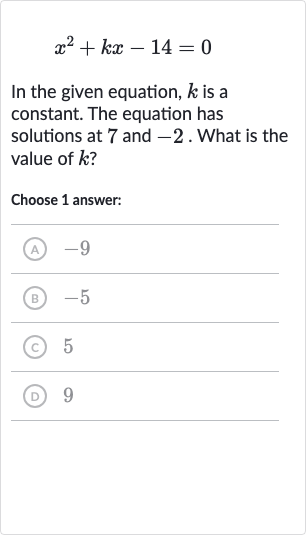Full solution
Q. In the given equation, is a constant. The equation has solutions at and . What is the value of ?Choose answer:(A) (B) (C) (D)
- Use Given Solutions: Since the solutions to the quadratic equation are given as and , we can use the fact that if and are solutions to the equation , then the equation can be factored as .
- Factor the Equation: Let's factor the equation using the given solutions: .
- Expand Factored Form: Now, we expand the factored form to find the quadratic equation: .
- Compare Coefficients: Comparing the expanded form with the given equation , we can see that the coefficient of must be equal to . Therefore, .
More problems from Transformations of absolute value functions: translations and reflections
QuestionGet tutor help
QuestionGet tutor help
QuestionGet tutor help
QuestionGet tutor help
QuestionGet tutor help
QuestionGet tutor help
QuestionGet tutor help
QuestionGet tutor help
QuestionGet tutor help

